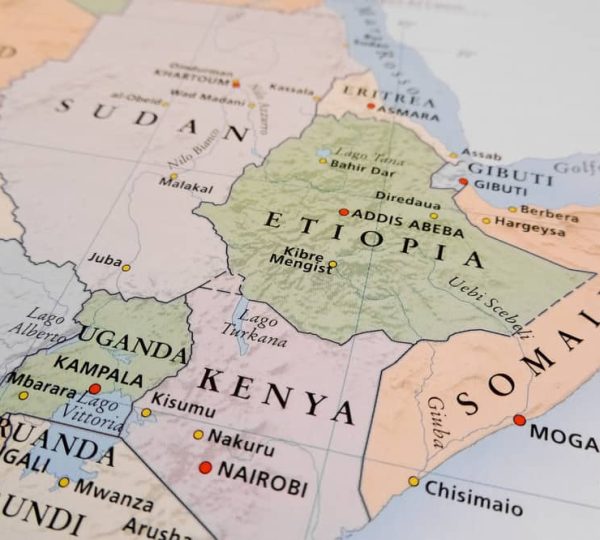Best Practices for Multi-country Market Research in Sub-Saharan African

In recent times, Africa has been seen as a great prospect for businesses, especially multinationals. This is because of the growing youth population that is tech-savvy and a diverse consumer market. One interesting thing to note about Africa or let us say Sub-Saharan Africa is that it is unique and it is not one size fits all. Africa is one continent that has a lot of influences because of colonization and the influence of various cultures. Due to its diversity, doing business in Africa is quite tricky, and also conducting Marketing or Consumer Research is not straightforward as compared to developed nations in the West. Africa is a unique emerging market. Also apart from the diversity in this great continent, there are issues regarding economic development, we refer to issues such as poor infrastructure, access to necessities such as water, and disposable income as a large percentage live below the poverty line and limited access to technology as compared to developed nations… although this is on the increase. Due to these reasons, conducting research in particular Market research can be challenging not to talk of multi-country market research.
Despite these issues or challenges, companies both local and multinational who want to thrive in this region need to conduct market research. In this article, our focus will be on Multi-country Research in Sub-Saharan Africa.
What is multi-country market research?
For most businesses who want to thrive in this continent and also have a competitive advantage in the sector they operate in, there is a need for organizations to conduct market research with the help of research because not only will this help them in strategic planning but also help them gain a competitive advantage.
According to Kumar 2000, it is simply market research that is conducted simultaneously or sequentially in more than one country. Research outcomes from these studies can provide valuable insights into consumer trends, local customs, and industry procedures. Businesses can use the data and insights gained to make strategic decisions and grow their business.
Why is multi-country research important in Sub-Saharan Africa? The international business is ever-evolving and for one to have a competitive advantage access to information is key for decision making, especially for emerging diverse markets like the African region. Thus, by conducting multi-country market research, consulting firms can identify potential opportunities and risks in different markets, enabling them to design effective, customized strategic plans and solutions for their clients. This type of research also provides a comprehensive perspective of the global marketplace, considering the economic and political elements that can affect business operations in various nations
Conducting successful multi-country market research studies in Sub-Saharan Africa requires careful planning and an understanding of the region’s diverse contexts. Here are some best practices:
1. Understand Local Contexts
· Cultural Sensitivity: Acknowledge cultural differences and local customs. Tailor your approach to each country’s unique socio-economic environment. It is essential to assess the culture of a target market to gain an understanding of the influence it has on consumer behaviour. This should include analyzing the norms and values, attitudes, beliefs, and social structures of the target market. As a result, companies can adapt their marketing and advertising campaigns to the local culture.
· Language Considerations: When conducting multi-country market research, language barriers can be a significant obstacle. As a market research consultant, one must be aware of local language translation and usage to ensure that research materials and surveys are culturally appropriate and easily understood. In addition, non-verbal communication and body language may differ from culture to culture and should be considered when conducting research.
2. Develop Clear Objectives: Establish specific, measurable objectives for the research to guide the study and ensure alignment with business goals. Identify the target demographics clearly for each country.
3. Use Mixed Methods: this will help gain more insight and will help your client or company make informed decisions. This is because having quantitative data is not usually enough, qualitative research will give them more insight into trends and understand consumers’ behaviours. In addition, the use of pilot studies can be conducted to refine questions and methodology before the full-scale implantation of research work starts. This prevents the collection of wrong data and waste of resources.
4. Leverage Local Expertise: Collaboration is the new strategy. Collaborate with local research firms in each country. You will save time and money because they know the market landscape and they know how to get the relevant data you need quicker and faster.
5. Adapt Data Collection Techniques: Leverage technology for data collection, as mobile penetration is high in many Sub-Saharan countries. In areas with limited internet access, prioritize face-to-face interactions.
6. Ensure Ethical Standards: Ensure participants understand the purpose of the study and consent to their participation. Adhere to local laws regarding data protection and privacy. You do not want to be arrested by local authorities for violating local laws and not following ethical standards.
7. Analyze and Interpret Data Contextual: Consider local economic, political, and social factors when analyzing data to draw relevant conclusions.
8. Report Findings Effectively: Present data in a way that is accessible and relevant to stakeholders in each country. Use graphs and visuals to convey complex data.
9. Continuous Feedback Loop: Be open to feedback throughout the research process to refine methods and questions as needed. Consider follow-up studies to track changes over time and adapt strategies accordingly.
10. Build Relationships: Establish relationships with key stakeholders such as local businesses, government bodies, and local communities for deeper insights and access. Also, you need to network. Attend conferences and workshops to stay updated on market trends and expand your network.
By incorporating these practices, you can enhance the effectiveness of your market research efforts across diverse countries in Sub-Saharan Africa.
Ready to invent the future?
Our teams possess extensive in-market experience that drives measurable growth for brands. Please reach out to us to learn more.
